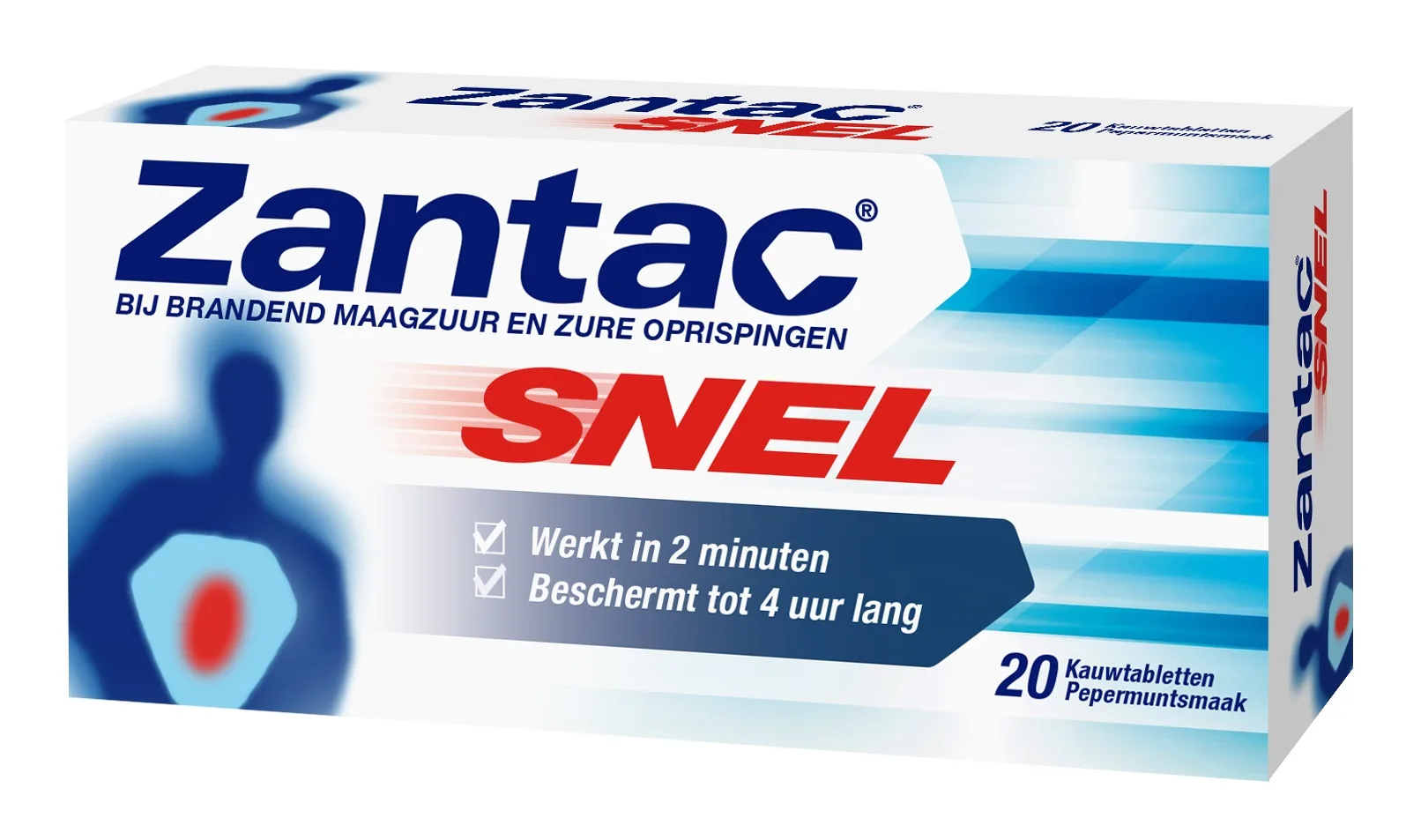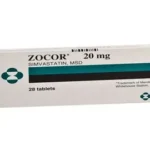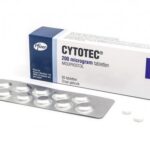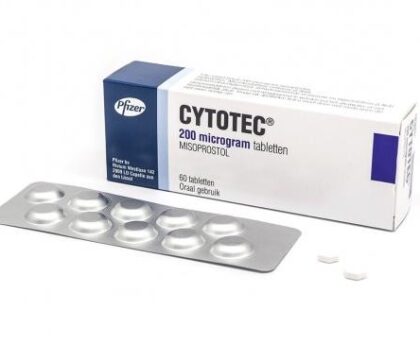Zantac (ranitidine) is a medication that belongs to the H2 blocker class, primarily used to reduce stomach acid production. It’s commonly prescribed for treating and preventing ulcers in the stomach and intestines, managing gastroesophageal reflux disease (GERD), and alleviating symptoms of heartburn and acid indigestion. Zantac works by blocking histamine receptors in the stomach, which decreases the amount of acid produced. This reduction in acid helps to heal and prevent ulcers, reduces symptoms of GERD, and provides relief from heartburn. Available over-the-counter and by prescription, Zantac can be taken as needed or on a regular schedule, depending on the severity of the condition. However, due to concerns about potential contamination with NDMA, a probable carcinogen, Zantac has been recalled in many countries, and its use should be carefully considered in consultation with a healthcare provider.


Effective Acid Reduction
Zantac is highly effective in reducing stomach acid, making it a reliable choice for treating conditions like GERD and ulcers. By blocking histamine receptors, it quickly decreases acid production, providing fast relief from symptoms such as heartburn and acid reflux. This efficiency makes Zantac a preferred option for both short-term and long-term management of acid-related disorders.

Versatility in Treatment
Zantac is versatile, treating a range of acid-related conditions, including ulcers, GERD, and Zollinger-Ellison syndrome. It’s available in various forms, such as tablets, effervescent granules, and syrups, making it suitable for different patient needs. Whether used for acute relief or chronic management, Zantac’s flexibility in dosing and administration makes it an essential medication for acid control.

Rapid Symptom Relief
Zantac offers rapid relief from symptoms like heartburn and acid indigestion, typically within 30 minutes of intake. This quick action is especially beneficial for individuals experiencing sudden acid reflux or those who need immediate relief from pain associated with ulcers. Its fast onset of action makes Zantac a go-to option for patients seeking prompt comfort from acid-related discomfort.
Zantac – Product Description
Overview:
Zantac (ranitidine) is a widely used H2 blocker that significantly reduces stomach acid production. It’s commonly prescribed to treat and prevent ulcers, manage GERD, and provide relief from heartburn and acid indigestion. By blocking histamine receptors in the stomach, Zantac decreases acid secretion, helping to heal and prevent ulcers and reducing the symptoms of GERD. Available in various formulations, including tablets and syrups, Zantac is versatile and can be used for both acute and chronic conditions. Despite its effectiveness, it’s important to note that Zantac has been recalled in many regions due to concerns about NDMA contamination. Patients should consult their healthcare provider to discuss alternative treatments or the risks associated with its use.
Indications:
Zantac is indicated for the treatment and prevention of stomach and intestinal ulcers, gastroesophageal reflux disease (GERD), and Zollinger-Ellison syndrome, a condition where excessive stomach acid is produced. It is also used for the relief of heartburn, acid indigestion, and sour stomach caused by excessive acid. Zantac is beneficial for managing chronic conditions requiring consistent acid reduction and for providing quick relief from occasional acid-related discomfort. It’s available over-the-counter for mild symptoms and by prescription for more serious conditions.
How to Use:
Zantac is typically taken by mouth, with or without food. The dosage depends on the condition being treated. For heartburn, a common dose is 75 mg to 150 mg taken as needed, while GERD or ulcer treatment may require 150 mg twice daily. For prevention, it can be taken 30-60 minutes before consuming food or drinks that cause heartburn. It’s crucial to follow the healthcare provider’s instructions and not exceed the recommended dose. If symptoms persist, consult a doctor as a stronger dose or alternative treatment might be necessary.
Advantages:
Zantac’s primary advantage lies in its ability to provide rapid and effective relief from acid-related conditions such as heartburn, GERD, and ulcers. Its versatility in treatment makes it suitable for both short-term and long-term use, catering to a variety of patient needs. Available in multiple forms, Zantac offers flexibility in administration. Despite its recall due to contamination concerns, Zantac’s established efficacy over the years has made it a trusted choice for acid reduction, provided it’s used with caution under medical supervision.
Conclusion:
Zantac has been a cornerstone in the treatment of acid-related gastrointestinal disorders, offering quick and effective relief. While it has proven to be highly effective, especially in managing GERD and ulcers, the recent concerns regarding potential NDMA contamination have led to widespread recalls. Patients who have relied on Zantac should consult their healthcare providers to discuss alternative treatments or safe use options. When used correctly, Zantac can still offer significant benefits, but safety must always be the top priority.
Composition:
Zantac contains ranitidine hydrochloride as its active ingredient, which works by blocking histamine H2 receptors in the stomach, thereby reducing acid production. The inactive ingredients in Zantac tablets typically include microcrystalline cellulose, magnesium stearate, and hypromellose, which help stabilize the drug and facilitate its absorption. The composition is designed to ensure rapid onset of action and sustained acid reduction, making it effective for managing acid-related conditions. However, concerns about contamination with NDMA, a potential carcinogen, have raised safety issues, making it essential for patients to consider alternatives or consult with healthcare providers about the risks.
Note:
Given the recall of Zantac due to NDMA contamination, it’s important to use this medication with caution. NDMA is a probable human carcinogen, and its presence in some batches of Zantac has led to concerns about long-term safety. Patients should seek advice from their healthcare providers regarding alternative treatments or safe use guidelines. For those who continue using Zantac, regular monitoring and adherence to prescribed doses are essential to minimize potential risks. If any unusual symptoms or concerns arise, immediate consultation with a healthcare provider is recommended.
Zantac: Rapid Relief from Heartburn and GERD – What You Need to Know
In this informative video, we explore Zantac.
Why us?

Authenticity Guaranteed:
We ensure that every batch of Capoten is sourced from trusted manufacturers, providing you with genuine medication that meets the highest quality standards.

Competitive Pricing:
Our pricing is designed to make essential medications like Capoten accessible to all, offering competitive rates and frequent discounts to help you manage your health affordably.




